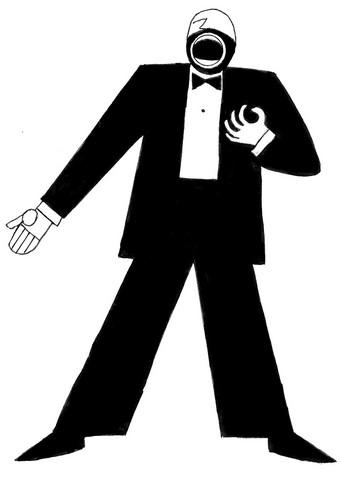The Masterclass
This week was the previously mentioned masterclass with the famous English mezzo-soprano, who shall be known as Dame J.B. (Incidentally, Radio 3 is featuring her all week; a bit of strange and somewhat daunting coincidence; I’m sure you’ve probably guessed by now...). It was a good afternoon and not nearly as nerve-wracking as I might have anticipated. I thought that I and the other three student singers all did a good job of presenting solid performances which could be shaped by Dame J.B. She is a lovely lady, very graceful and quite sprightly for her 73 years. She talks with great passion, knowledge and commitment about the art of singing. I chose Ivor Gurney’s beautiful setting of ‘Sleep’. My interpretation ended becoming sort of a hot topic. Both my fabulous accompanist and I saw the song as sort of an agitated reflection on insomnia (and our faster tempo led to the controversy) , while nearly everyone else saw the song as a slower more heavy statement. Dame J.B. disagreed with me, but was willing for me to try to get my interpretation across. She also slipped in some helpful things about making more space for vowels in the middle range and giving more voice and colour to short notes. I prefer this sort of technical work in masterclasses to those teachers who try to overhaul one’s whole technique in one 30-minute session. This session was equally about interpretation, performance and technique. Eventually after making some vocal and pianistic adjustments we managed to perform the song as we desired but in a more convincing manner. I also sang Faure’s ‘Lydia’ which became better as Dame J.B. encouraged me to be more personal and specific in my interpretation. She came back the next day for a Q & A session which was also interesting. It is interesting to hear great artists talk about their reasons for pursuing music as art. I have heard more than one talk about a performer’s duty to serve the composer without ego. It is true that song gives us the chance to express ourselves and our feelings on a particular piece, but we must remember that it is done through the words and music given to us. Our first duty as performers is to make sure that the piece of music comes across clearly and that we do our best to give it life. I was also reminded of the incredible commitment it takes to really be a world class musician. Dame J.B. while quite nice and classy, also had a sort of toughness and drive that no doubt carried her through her long career. I wish I could focus myself that much, but I’ve always been too interested in different elements of musicmaking. Sometimes I wonder if I really applied myself as a singer and became possessed of a drive to succeed if I actually would. Still, I want so many other things though and I fully intend to pursue all of them...without regret.

